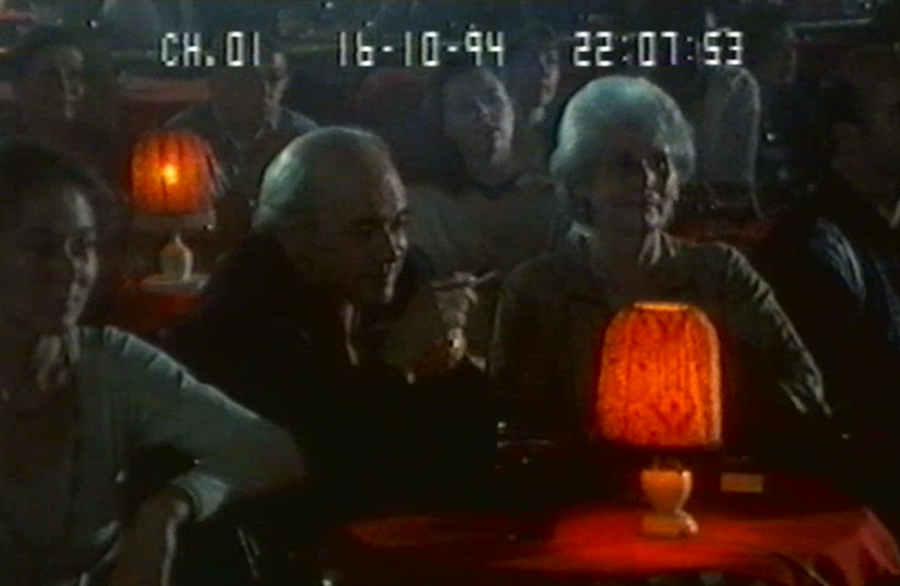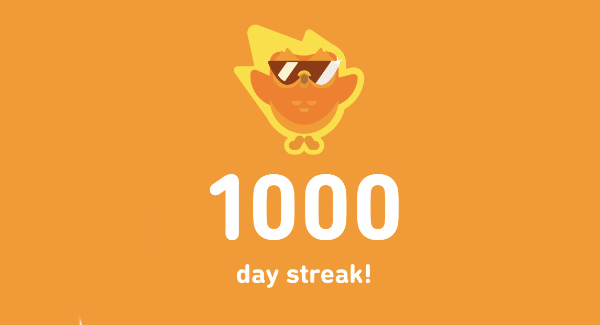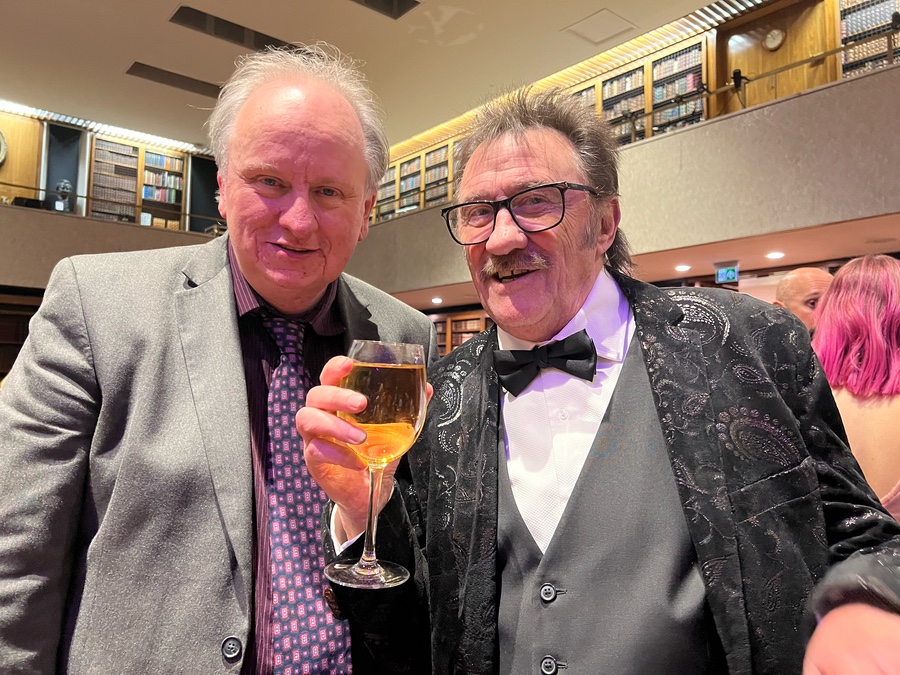So very long ago now, I used to write sometimes for an entertainment website – I’ve done this a lot and for more sites and magazines than I can reliably remember – and I was there when this one decided to launch TV episode guides. Even then, there were a fair few of these online, but they did tend to be either barebones TV Guide-style listings, or gushing fan tributes. This site wanted to become known for having the best episode guides, ones that were genuinely useful to someone looking up a detail, were totally accurate in that detail, and were also just a good read.
Really, they wanted readers to know the staff knew their stuff: the site wanted to be seen as an authority. So it had to be obvious that the guide wasn’t just rephrasing listing or PR copy, this all had to clearly be written by people who watched these episodes.
That’s a pretty ambitious, er, ambition. Not from the writing: the entire staff and all the freelancers like me had been writing about television drama for years on this and other publications. But it was dauntingly ambitious to start off on what was planned to become this enormous, comprehensive guide to just about everything.
I can’t remember all of the shows that something like five or six people were assigned first. But here’s how long ago this was: I got the then-new “Brothers and Sisters” season 1. I’ve just had to check and it apparently aired in 2006, which is a lot more recently than I’d remembered. I also had not remembered that there were 23 episodes in that first season.
Plus I can’t recall how long I got to watch them. I do remember a faintly feverish sense about it, I remember thinking I could just fit in one more episode if I did this or that, if so-and-so was as late as they usually are. I want to say I watched the season in a week, I am certain it was well under a month. Let’s call it ten days.
Ten days, one season, done, written about, filed, and I waited for what the next assignment would be.
It never came. Not on episode guides.
Instead, when my copy finally got read, I was told off. Taken to one side and told off.
At this distance, I can’t possibly remember the criticism, the specific words they used. But actually even right then, on the day, sitting in front of an unhappy editor, I believe my mind translated the words into “you wrote it too well”.
Because no one else watched any of their assigned shows.
Not one episode.
Everyone else had just rephrased and padded out listings and whatever they found online from the TV company’s PR people.
If you read mine, you knew I’d watched. If you read any of theirs, you knew they hadn’t. I’m not claiming that I wrote well and they did not, but I did and they didn’t.
I was told that I had to cut my piece back, strip out as much as possible, and make it look like everybody else’s. I truly can’t remember and strongly suspect I didn’t say fuck that, but I know for certain that I didn’t do it. Just as I know for certain that the site never became known for any episode guides at all. Tellingly, to find out for you when this was and how many episodes there were in Brothers and Sisters, I looked up epguides.com, not this entertainment site.
God in heaven.
I’ve just checked on a whim and this site I’m not naming still exists, albeit in a radically different form. I couldn’t possibly resist: I’ve done a search on it for Brothers and Sisters season 1.
The site says it aired in 1998, which it didn’t. It lists this 2006 drama as drama, which is true, but also incorrectly says that it’s children’s TV.
I’m surprised to say that there is a guide, though it’s just 50 words or so per episode. I hope it’s not based on my writing: it reads like a short, flat PR/TV Guide listing. I suspect the actual listings whenever this show airs are automatically pulled from the guide: the format has that kind of feel to it.
Anyway.
The argument for cutting mine down to match everyone else’s was that the site had to look consistent. Fine, I definitely thought and I hope I said, be consistent by having them do their assignment, watch the bloody shows and write better.
To my mind, the argument against cutting down to match everyone else’s was what’s the point? For the sake of a consistent look, they were throwing away all of this ambition, every single bit of their aim for the entire project.
I didn’t know they were also throwing away accuracy and I’m quite shaken by that. Partly from how you’ve just got to get facts right, but also because the first transmission date of a TV drama is not exactly a grey area.
Here’s the thing, though. I do understand that desire for consistency. And have even shared it.
I used to believe that there was a need for this on the other end of this TV episode guide issue, that there was a need for it in actual TV episodes too. I love television drama series and for all the myriad issues and possibilities in them, one thing seems a bit obviously true.
They’re series.
You hope for some great progression between episode 1 and episode 23, but episode 23 has to be the same show that episode 1 was. You can’t have episode 1 be serious, bone-crunching drama and episode 23 be a musical. Well, you can, and there are shows that pull off incredible ranges of episodes.
Only Doctor Who really manages that, though. Imagine if Line of Duty was piercing contemporary drama one week and stilted historical renactment the next. Or more possibly, imagine if one week Line of Duty felt authentic and in the next it didn’t.
There has to be a consistency and I remember adding that criticism to the very many others I had about ITV’s police soap, The Bill. Whenever JC Wilsher would write an episode, the characters sounded and felt and seemed like real police. When other people wrote episodes, not so much.
I felt this was wrong and that the series was doing a bad job.
But.
I was wrong.
And this is why I wanted to talk to you about this today, why it’s on my mind and –– I can’t say I expected this –– why an argument on an entertainment site from prehistory came back into my mind for the first time in decades.
Last night, I watched Look to the Lady, the first story in the BBC’s 1989/1990 dramatisation of Margery Allingham’s Campion novels. Some time last week I’d seen a later story in the short run and enjoyed it enough to want to watch more.
The story later in the run was fine. Look to the Lady was excellent. Much funnier, every character much more witty and just alive, and plot-heavy exposition conveyed with a twinkle in the eye. Loved it.
And knew I would.
Because this first story was dramatised from Allingham’s book by Alan Plater. Knowing he’d written it, my wife Angela asked beforehand whether it was going to be wittier than the last one. Because, she pointed out, whenever he wrote Lewis episodes, Inspector Lewis and didn’t-he-used-to-be-good Sergeant Hathaway were always smarter, faster, better than in other episodes.
It’s also true that the episode included this line about making it to the Mexican border that Alan seemed to enjoy fitting in to every show he could.
But if that was an unmistakeable signpost that he’d written the episode, it was never the case that he went so far as to make a show unrecognisable. It was never the case that Lewis and Hathaway were different characters in Plater’s episodes compared to other ones. It was just that you were more interested in them when he was the writer.
This is a case where I suspect I could have argued for more consistency right up until very recently, ie last night. But if my head sees the need for a series to be a series, my heart knows I’m wrong and it’s known that for a lot longer than 12 hours.
You want any series to be uniformly excellent, but it isn’t going to happen. Some episodes will be better than others, visibly and markedly so, but it is not the series getting it wrong for allowing that difference. It’s the series being damn lucky to have a great episode.



